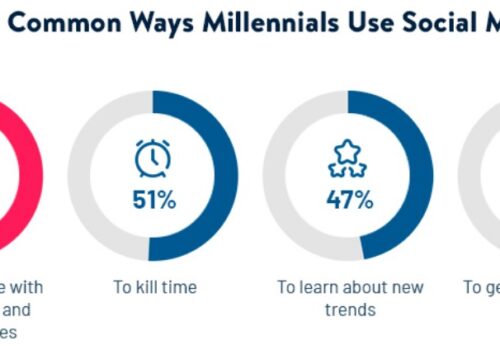As an entrepreneur, I recognize the significance of staying current on industry trends.
It’s all about how more and more people are starting their own businesses and chasing their dreams. From small startups to big ideas, entrepreneurship is booming, and it’s changing the way we think about work and success.
Whether you’re dreaming of starting your own company or just love hearing about cool, new business ideas, this journey into the world of entrepreneurship is going to be really interesting.
Let’s dive in and explore what’s making so many people catch the entrepreneurship bug!
| Statistic Category | Details |
|---|---|
| Millionaires as Entrepreneurs | Over half of the world’s millionaires are self-made entrepreneurs. In the U.S., nearly 72% of millionaires are self-made; In the tech industry, about 85% of entrepreneurs are millionaires. |
| Millionaire Entrepreneurs by Country | In India, 20% of millionaires are entrepreneurs; In China, 97% are entrepreneurs. |
| Entrepreneurial Sectors | Service sector: 44.6%; Retail: 14.3%; Manufacturing: 11.2%; Real estate: 10.7%; Other sectors including finance, insurance, healthcare, hospitality, transportation, IT, and arts & entertainment. |
| Entrepreneurship by Age in the U.S. | 16% of adults aged 18-64 are entrepreneurs; The average age of an employed entrepreneur is 44 years; 55% of adults have been entrepreneurs at some point; 26% have started at least two businesses. |
| Entrepreneurship by Gender | 41.5% of entrepreneurs are women, 58.5% are men, 10% are LGBT. |
| Entrepreneurship by Race in the U.S. | The most common ethnicity is White, followed by Hispanic, Latino, Asian, and Black or African American. |
| Entrepreneurial Education in the U.S. | The most common degree among American entrepreneurs is a bachelor’s degree. |
| Countries with Highest Entrepreneurship | U.S.: 27%; China: 21%; Singapore: 17%; Germany: 14%. Other notable countries include Canada, India, the U.K., Guatemala, Jamaica, El Salvador, the Philippines, Peru, the Netherlands, and Angola. |
| U.S. States with Highest Entrepreneurship | California: 32%; New York: 28%; Florida: 28%; Texas: 28%; Massachusetts: 27%. |
| Impact of COVID-19 on Global Entrepreneurship | 3% decrease in a total number of entrepreneurs globally, 8% decrease in developed countries, 11% reduction in new businesses in developed countries, 2% decrease in entrepreneurs in developing countries, and a 4% decrease in new businesses in developing countries. |
What Percentage Of Millionaires Are Entrepreneurs?
According to a UBS Global Wealth Management survey, more than half of the world’s millionaires are self-made entrepreneurs.
In the United States, the proportion of self-made millionaires is even higher, with nearly 72% of millionaires being self-made. The figures in the tech industry are exceptionally high, with an estimated 85% of entrepreneurs being millionaires.
Even more impressive is that many of these entrepreneurs built their businesses from the ground up without the assistance of a pre-existing company or inheritance.
Their ability to achieve the wealth they have today is a testament to their hard work and dedication.
Most of these millionaires began with a great idea and the determination to see it through. They used their skills and experience to create something that could help others and eventually turned it into a profitable business.
Their success stories demonstrate that anyone can become a millionaire with the right mindset. These entrepreneurs did not get to where they are today by chance or privilege.
Source: Pexels
Their commitment, willpower, and resilience enabled them to achieve their objectives.
Although the global percentage of millionaire entrepreneurs is high, the figures vary by country. For example, the number of millionaire entrepreneurs in India is much lower at 20%, compared to a whopping 97% in China.
Overall, it is clear that a sizable proportion of millionaires worldwide are entrepreneurs. Their success stories demonstrate that you can attain great wealth through hard work and dedication.
Industry-wise:
The reports reveal that the majority of entrepreneurs are:
- Service sector (44.6%)
- Retail (14.3%),
- Manufacturing (11.2%), and
- Real estate (10.7%).
There are entrepreneurs in the finance, insurance, and healthcare sectors, and those in the hospitality and transportation industries make up 6.3% of the total.
Information technology and the arts and entertainment industries each make up 3.2%.
Which Country Has The Highest Percentage Of Entrepreneurs?
Source: Pexels
1. Country Wise:
According to the Global Entrepreneurship Monitor, the United States is the most entrepreneurial country, with 27% of adults participating in entrepreneurial activities.
This is followed by:
- China (21%),
- Singapore (17%), and
- Germany (14%).
Other countries with high levels of entrepreneurship include Canada (13%), India (11%), and the United Kingdom (9%).
Additionally, Guatemala, Jamaica, El Salvador, the Philippines, Peru, the Netherlands, and Angola place the highest value on entrepreneurial activity across cultural values.
2. State-wise:
In the United States, the states with the highest percentage of entrepreneurs are:
- California (32%),
- New York (28%),
- Florida (28%),
- Texas (28%), and
- Massachusetts (27%).
In Canada, the provinces with the highest number of entrepreneurs are:
- Alberta (15%),
- Ontario (14%), and
- British Columbia (14%).
In the United Kingdom, the areas with the highest percentage of entrepreneurs are:
- London (17%),
- the East Midlands (12%), and
- the West Midlands (11%).
In India, the states with the most entrepreneurs are:
- Maharashtra (14%),
- Delhi (14%), and
- Karnataka (13%).
Lastly, in China, the provinces with the highest number of entrepreneurs are:
- Guangdong (19%),
- Shanghai (17%), and
- Jiangsu (13%).
Impact Of Covid 19 Pandemic On Entrepreneurship
The COVID-19 pandemic has significantly impacted entrepreneurs and global entrepreneurship.
According to an International Labour Organization report, the global economic crisis caused by the pandemic has resulted in a 3% decrease in the total number of entrepreneurs globally.
This decline has been felt in developed countries, where the number of entrepreneurs has decreased by 8%, and the number of new businesses has reduced by 11%.
The decline in entrepreneurs in developing countries is more moderate, with a 2% decrease in total entrepreneurs and a 4% decrease in new businesses.
Source: Pexels
Furthermore, the pandemic has reduced global finance and venture capital investments, making it more difficult for entrepreneurs to obtain the capital they require to start or grow their businesses.
The pandemic has also reduced consumer spending and demand for goods and services, negatively impacting many businesses.
How To Become An Entrepreneur?
Below are the 9 points on How to become an Entrepreneur:
Source: Pexels
1. Build the Right Skills & Knowledge
Building a solid foundation of knowledge and skills in your industry is essential to become a successful entrepreneur.
This may include taking courses, attending workshops or conferences, or seeking mentorship from experienced entrepreneurs.
It’s important to stay current on industry trends and developments and to continuously improve your skills and knowledge to stay ahead of the competition.
2. Build the Right Network
A solid network is critical for entrepreneurs. This includes connecting with other entrepreneurs, industry experts, investors, and potential customers.
Networking can help you access new opportunities, find mentorship and support, and build relationships that can benefit your business long-term.
3. Niche Down Your Skills
Specializing in a specific area or skill set can set you apart from others in the market and make you more appealing to potential customers.
Identifying your unique strengths and focusing on areas where you excel can help build a successful business around those skills.
4. Get Your Foot in the Market
Be sure to start your business before everything is perfect. Get your foot in the market as soon as possible to validate your business idea and gain real-world experience.
This could involve launching a minimum viable product (MVP), offering your services freelance, or participating in trade shows or events to build visibility for your business.
5. Ideate a Business Plan
Developing a comprehensive business plan is essential for any entrepreneur. This should include your mission statement, target market, marketing and sales strategies, operational plan, and financial projections.
A clear plan can help you stay focused, make informed decisions, and measure your progress over time.
6. Fundraising
Securing funding is a significant challenge for many entrepreneurs. It’s important to consider all available options, including loans, grants, and investments from friends, family, or venture capitalists.
Building a solid business plan and demonstrating your potential for success can increase your chances of securing the funding you need.
7. Build Your Business
Building a successful business takes time, hard work, and dedication. It’s essential to focus on delivering value to your customers, continuously improving your product or service, and staying up-to-date on industry trends and developments.
Establishing a solid brand, maintaining a positive reputation, and being flexible and adaptable are all critical components of building a successful business over the long term.
Quick Links:
- Interview With Entrepreneur Ravitej Yadalam
- Jitendra Vaswani Quotes
- Who Are Successful Entrepreneurs?
- Roadblocks To Entrepreneurship Journey and How To Overcome It
Conclusion: The Rise Of Entrepreneurship 2026
Entrepreneurs need to keep themselves updated about the latest industry trends and understand the impact of the pandemic on their businesses.
By doing so, they can identify areas of opportunity and make informed decisions to ensure the success of their business.
Analyzing the latest reports and data can help entrepreneurs develop strategies to innovate and remain competitive in the current market conditions.
With the right approach and knowledge, entrepreneurs can continue to grow their businesses despite the challenging market conditions.
I hope this article has helped you identify the right location, industry, and challenges you may face to begin your entrepreneurial journey.
If you have any queries, feel free to comment below. I will be more than happy to help you.









